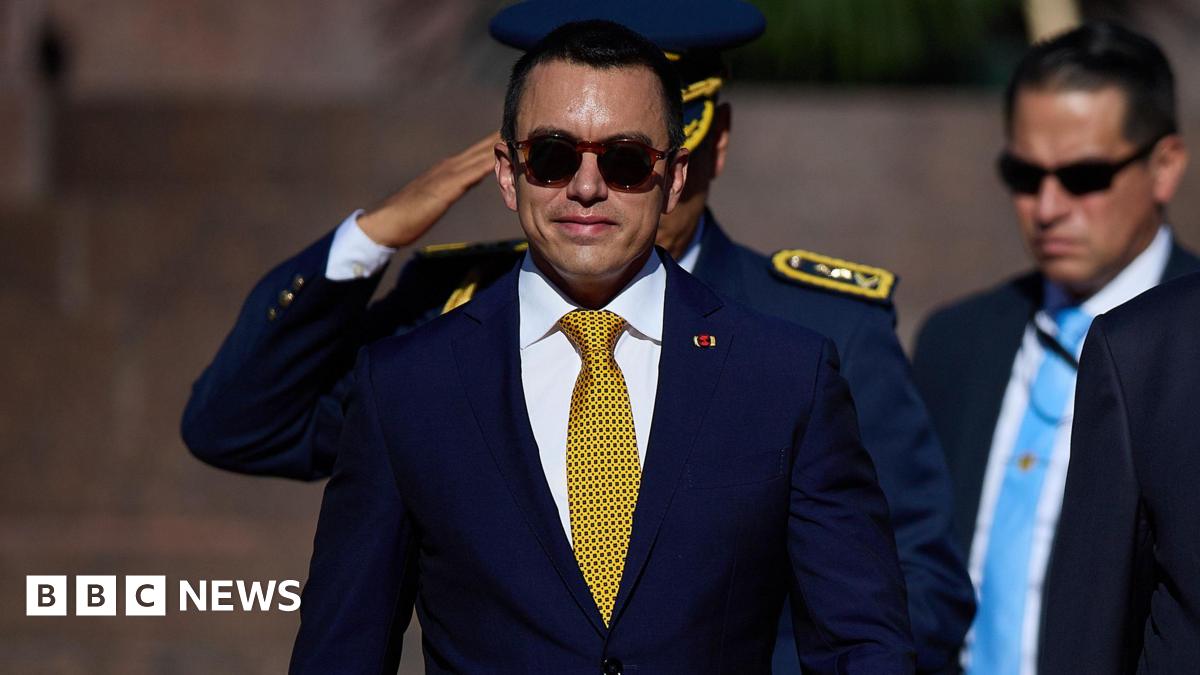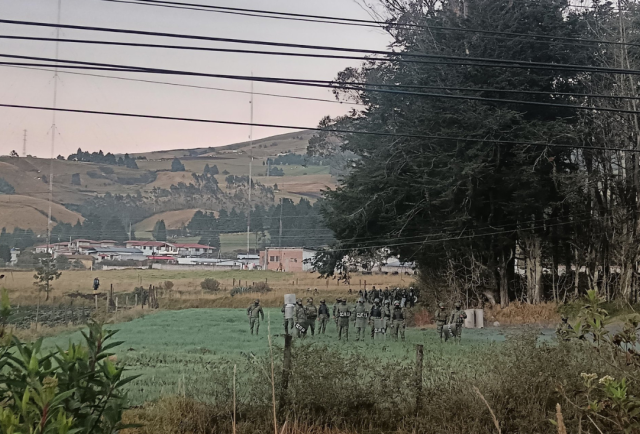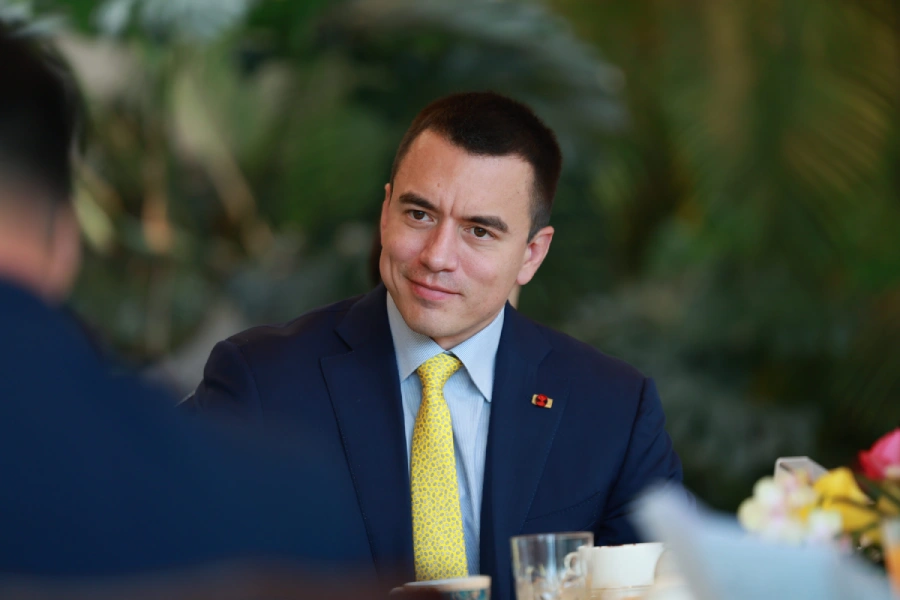Ecuador President's Convoy Attacked Amid Fuel Subsidy Protests
A humanitarian convoy led by Ecuadorian President Daniel Noboa was attacked on Sunday in Imbabura province amidst ongoing protests against fuel subsidy cuts. The convoy, which included diplomats from the UN and the EU, was ambushed while delivering aid to affected communities. The incident has escalated tensions and raised concerns about the security situation in the country.
Details of the Attack
According to government spokeswoman Carolina Jaramillo, the convoy was attacked by approximately 350 people using Molotov cocktails, fireworks, and stones. The attack occurred as the convoy was en route to distribute aid. The convoy included high-ranking diplomats such as Italian Ambassador Giovanni Davoli, who confirmed the attack and stated he was unharmed, condemning it as a "terrorist act."
The Ecuadorian armed forces have accused protesters of injuring 12 soldiers and taking 17 others hostage. The military characterized the attackers as "terrorist groups" and shared graphic images of injured soldiers, warning that such acts will not go unpunished.
Fuel Subsidy Cuts and Indigenous Protests
The violent clashes are a result of a sharp rise in fuel prices following the government's decision to remove fuel subsidies. This decision aimed to reduce budget expenditures and curb fuel smuggling, but has sparked widespread protests. The Confederation of Indigenous Nationalities of Ecuador (Conaie), Ecuador's largest indigenous rights organization, has called for an indefinite national strike to protest the president's move.
"They resist Ecuador's progress and chose violence," Noboa said, referring to the armed protesters. "Ecuador cannot go backward."
Conaie also alleges that a member was shot dead by the armed forces during protests, a claim the government denies, stating the deceased was an indigenous resident. Conaie is calling on the government to halt mining on indigenous lands and cease the repression of protesters.
Investigations and International Response
The Office of the Ecuadorian Prosecutor has stated that an investigation will be conducted in accordance with international protocols to ensure objectivity and transparency. The UN Human Rights Council's regional representative Jan Jarab has called for an "urgent dialogue" and a probe into the death and injuries.
The government links the attack to "terrorist groups" who have allegedly infiltrated the demonstrations. Karolina Haramillo suggested the violence was initiated by Marlon Vargas, the leader of CONAIE, due to his calls for protests and actions such as seizing oil wells. The government emphasizes that those responsible do not represent the Ecuadorian people but are criminals.
Future Implications and Perspectives
Analysts warn that the escalation of the conflict could destabilize Ecuador's economy and political landscape, impacting its international image. Indigenous leaders are urging the government to reconsider its policies on mineral extraction and engage in meaningful dialogue with communities regarding land use.
| Key Event | Description |
|---|---|
| Convoy Attack | Humanitarian aid convoy led by President Noboa attacked in Imbabura Province. |
| Protests | National strike called by CONAIE due to fuel subsidy cuts. |
| Casualties | Soldiers injured, others held hostage, one alleged death during protests. |
| Investigations | Ongoing investigation with international protocols by the Ecuadorian Prosecutor. |
 Visit the website
Visit the website




